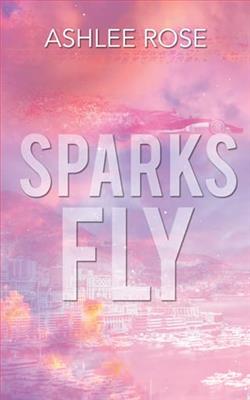Page 12 of Past Purgatory (Bishop Security 4)
New York City
December 13
Aiden rotated his stiff shoulder while he waited for the building manager to open the door to Regina Phelps’s Manhattan apartment. A drive that should have taken two hours had taken four, and the muscles around the injury were complaining.
“Anything stand out about this woman?” Aiden asked. The building was a twenty-unit walk up in Murray Hill.
“Never talked to her.” The guy turned the key and threw the deadbolt. “She left me a note once about a water stain on her ceiling. This is New York. People aren’t exactly baking cookies for their neighbors.” He pushed open the door and gestured Aiden inside. “I’ll be at my place if you need me. 1C.”
The apartment was a compact one-bedroom, cluttered, lived-in. Through the window in the living space, the fire escape landing doubled as a smoking lounge. There was a plastic lawn chair and a flower pot ashtray. Aiden walked past what appeared to be a rarely-used kitchen. Takeout menus were stuck to the fridge door with jokey magnets. A coffee mug sat half-full in the sink. The trash was starting to smell.
Regina had converted the small dining nook into an office. She had a wall of fame with a framed cover of a tech magazine he had never heard of and photos with people he didn’t recognize. He took a seat at the utilitarian desk.
The laptop, as he assumed, was password protected and would be sent to the tech lab. Donning latex gloves, he looked through the drawers—there were only three running down the right side. One held office supplies: binder clips, pens, a stapler. The drawer below was jammed with old receipts, bills, and correspondence Regina must have felt didn’t merit her attention but were too important to throw away. The bottom one held printer paper.
Standing, Aiden turned his attention to the gray filing cabinet in the corner. He pulled open the heavy top drawer. Yes. Regina Phelps may have been careless with her living space, but with her work, she appeared to be meticulous. Every story she had ever written had a file labeled with the date, title, and publication. The drawers were labeled by year. These were the most recent. He pulled out a file at random. Inside, tucked in a plastic sleeve, he found the clipped article as it had appeared in the publication, along with her notes and research. At the very front was an unmarked folder with a hot pink sticky note with one word written on it: whistleblower.
Aiden withdrew the file. Inside was some cursory research on a popular social media platform and two pages of a printed email thread.
From: [emailprotected]
To: [emailprotected]
Subject: information
Dear Ms. Phelps,
I am a data analyst at ClipLife and have been very troubled by the data mining and marketing practices concerning minor users of the site. I have evidence in the form of memos, algorithm development, and recorded meetings, all showing the platform’s unethical and illegal (and, frankly appalling) strategies to manipulate young site users and sell data. I would like to meet with you in person to discuss next steps.
The email was unsigned, and the replies were brief, setting up the meeting in Philly. Aiden placed a call.
“Tech cave.”
“Hey Diggy, it’s Aiden.”
“A-Mac! Welcome back to the land of the living.”
“Thanks, buddy.”
“Whatcha need?”
“Did you get into Regina Phelps’s cell phone yet?”
“Facial recognition works on corpses. So, yeah.”
“That’s fucking grim.”
“Tell me about it.”
“I’m in her apartment, and she has a hard copy of an email.” Aiden rattled off the sender and content. “She also had printed copies of all of her work. Why would a techie have all this shit in paper form?”
Diggy laughed. “We know better than most all the pitfalls of the virtual world.” He paused as he typed. “Huh, no email here, and nothing in her deleted folder.”
“Why would she delete it?” Aiden asked.
“If she deleted it, it was probably because she didn’t want to risk someone hacking her system to find it.”
“What do you mean ‘if’?”















